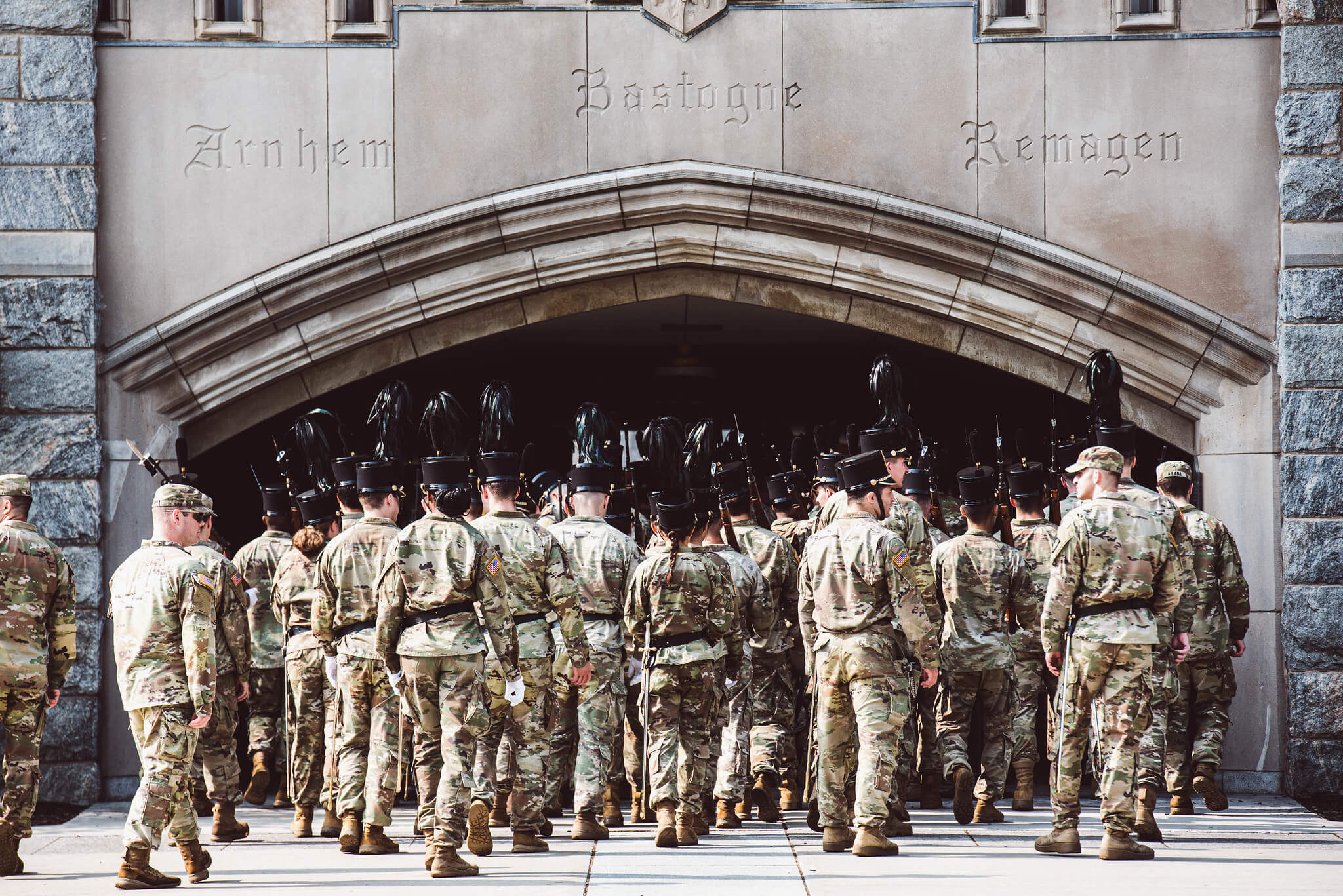Allowing the military to determine what “extraordinary circumstances” permit disobedience invites insubordination and ineffectualness.

Bravo to Graham Parsons for resigning his teaching post at the U.S. Military Academy when the leadership of that institution restricted his ability to conduct and convey scholarship.
As Parsons wrote in his May 8 New York Times op-ed, “The trouble began around the time Mr. Trump was sworn in for his second term as president. That week, West Point administrators pressured me to withdraw an article about the military’s obligation to be politically neutral that had been accepted for publication at the national security blog Lawfare.” Lawfare published that piece the very same day.
So much of our political discourse is consequence-free grandstanding; he is incredibly admirable for refusing to participate under the politically-constricted terms the Department of Defense and West Point leadership have imposed, and explaining his decision substantively and publicly. Preserving democracy in these difficult times requires people willing to model the courage of non-compliance, and Parsons has done so in ways that redound greatly to his credit and to the public good.
While I commend the decision to publish Parsons’ piece, I would like to respond to the substance of the argument. Parsons argued that “military leaders may be ethically obligated to refuse or resist some extraordinary orders even if those orders are not patently illegal.” He rejects “a conventional interpretation of political neutrality,” arguing it is “a luxury the U.S. can no longer afford,” and advocates instead for a much more expansive definition of duty—moral, not legal—to “defend civil society and the neutrality of the military when these are threatened by civilian authority.”
That non-compliance ought not to extend to service members who refuse to carry out legal orders, which is what Parsons advocates. There is virtually no one in the American military qualified to ascertain what lawful orders are democracy-corroding. Allowing the military to determine what “extraordinary circumstances” permit willful disobedience of lawful orders invites two bad outcomes: insubordination and ineffectualness.
Parsons makes the important point that the public cares about civil-military relations because of “the unique power it gives those with authority over it. Whoever controls the military, whether they be a dictator or an elected representative, is necessarily a unique danger to society.” But the framers of the American political system anticipated that problem (13 of the 85 Federalist Papers specifically address the dangers standing military forces pose in free societies), and addressed it without recourse to the military.
There are only two crucial tests of the health of civil-military relations in the United States: Can the president fire anybody they wish to, and will the military carry out policies they don’t agree with? The Trump administration’s recent firing of several military leaders and judge advocates general without complaint from the ranks affirms the first criterion. Additionally President Trump is not alone in relieving senior officers—President Barack Obama relieved nearly as many. And on the second criterion, the military routinely carry out policies they caution elected leaders against choosing, the 2021 withdrawal from Afghanistan being a notable instance.
There’s a name for encouraging the military to believe that they know better than their civilian superiors what society needs. It’s praetorianism, named for the class of soldiers during the Roman Republic who became so powerful they determined political outcomes, a dynamic that eventually contributed to the fall of the Roman Republic. Historically, this is how democracies corrode into dictatorships: by inviting the military in to determine political outcomes. One ought not to bet our democracy on the belief that the military is so much more virtuous than the society from which it is recruited.
Also, it is a popular myth that military men and women can refuse to obey “immoral” orders. The only options those men and women have when issued a lawful order is either to obey it or resign their commissions. And if the refusal were to come during active operations, they would almost certainly be remanded into penal custody for court martial. Militaries are hierarchical organizations for a reason, and that reason is to permit effective operations. An effective military requires the expectation that lawful orders will be executed. Inviting Corporal Schake, or even Colonel Schake, to judge for herself whether the president’s policy is appropriate would render the military ineffectually chaotic, as well as insubordinate.
It is not “neutrality” for the military to assume the role of adjudicating constitutional interpretation, because inviting the military to become the balance of power among their elected civilian superiors is a genuine danger to democracy as well. In longing for someone to save us from the political problems of our own creation, Parsons recommended a course of action that would create a different problem, but one just as corrosive to democracy. Emboldening the military to ride in and save us from ourselves would be another kind of danger.
The American system of government provides solutions for democracy-corroding actions. Those solutions are civilian, not military. It is the job of the courts and the legislature to check and balance the actions of the executive. The military cannot substitute for them or preserve their constitutionally prescribed prerogatives. The appropriate response to democracy-corroding lawful orders is to make them unlawful.
What the American system needs from its military during a political fracas is nothing. Inertness is the proper role for the American military when the Constitution is under assault. The military cannot save us from the political leaders Americans elect. And we should not want them to.
– Kori Schake leads the foreign and defense team at the American Enterprise Institute, and is the author of the forthcoming The State and the Soldier, a history of American civil-military relations. She is also on the board of Protect Democracy. Published courtesy of Lawfare.


